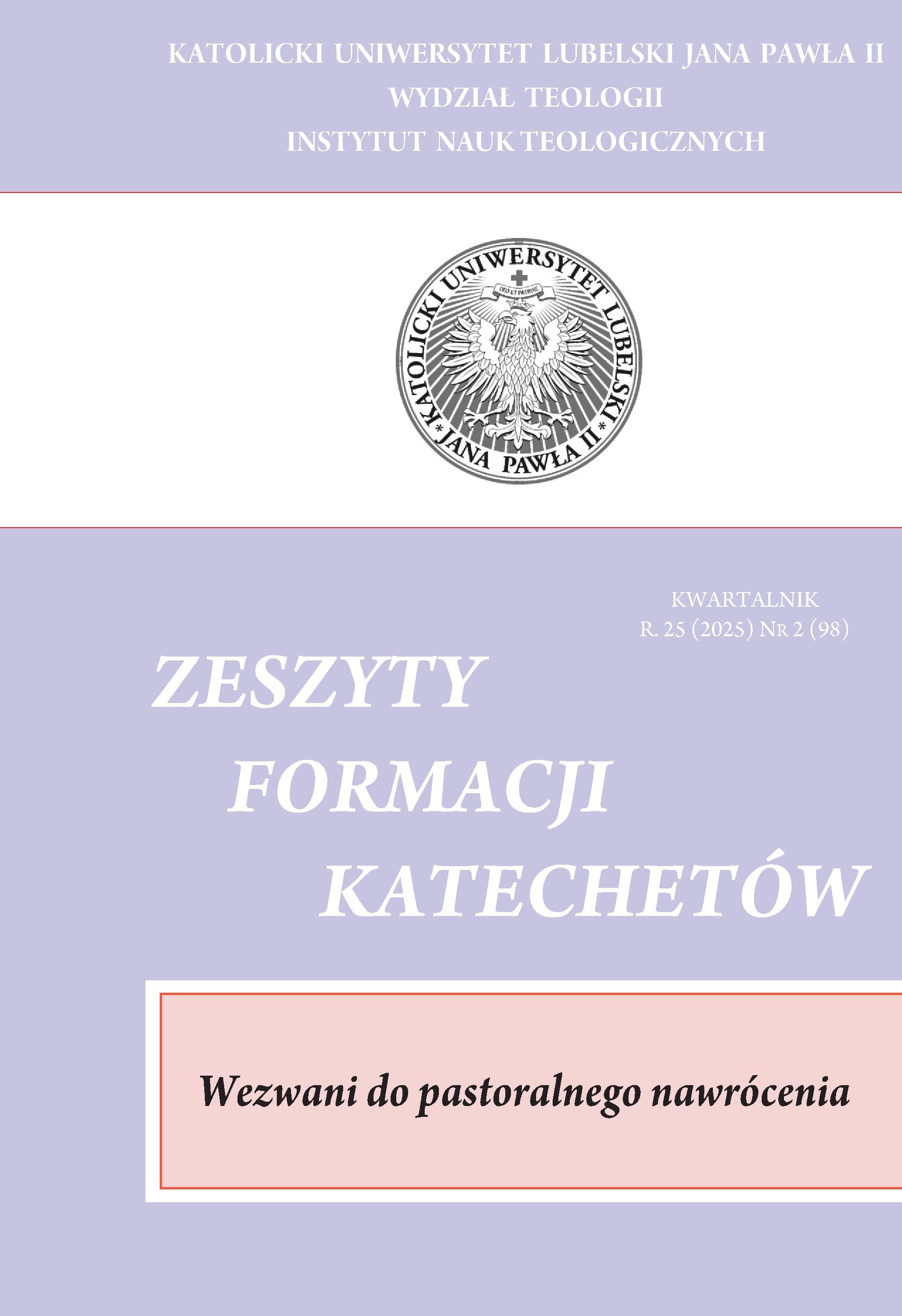Missionary conversion of the parish
Keywords:
conversion, parish, missions, pastoral work, community, Church, vocationAbstract
The Church was born from the mission of Jesus Christ, which he left to his disciples when he left this world. The growth and development of the community is the result of the willing response to the evangelizing command of our Lord, which was given by His disciples and then subsequent generations of believers. The proclamation of the Good News is therefore related to the Church and constitutes its essence, i.e. missionary vocation. The evangelizing mission introduces Christians to the heart of the Lord God, whose deepest desire is to lead every person to Salvation (cf. 1 Cor 2:4). The purpose of preaching the Gospel is to discover and implement God’s will regarding Salvation, so it is not one of the tasks of the Church, but is its essence. Pope Paul VI, who emphasized that evangelization is the primary and natural mission of the Church, which it should consider a grace and a proper vocation (cf. Evangelii nuntiandi, 2). Paul VI clearly stated that the community of the Church is for evangelization. Every member of the Church constantly needs conversion, it is a condition without which the mission of the Church cannot be properly implemented. Pope Francis noticed that over time and the development of Christianity, in many regions of the world, the Church’s activity, to a greater or lesser extent, lost its evangelizing purpose, and was replaced by concern for the preservation and development of the position acquired by the Church in a given nation and culture, and maintaining in its ranks people who have already received the first sacrament of Christian initiation. Therefore, in order for the Church to fully take up its deepest calling, a missionary transformation of the entire community of believers and the conversion of pastoral care is necessary today (cf. Evangelii gaudium, 25, 27). Modern man, both believers and non-believers, needs conversion and community to find the meaning of his life and the vocation with which he has been given.
References
Augustin G., Drogi skutecznej ewangelizacji, w: Nowa ewangelizacja – impuls do ożywienia wiary, red. G. Augustin, K. Koch, I. Dias, W. Kasper, Ząbki 2012.
Blachnicki F., Oaza Rekolekcyjna Diakonii Ruchu Światło-Życie, Kraków 2013.
Chmielewski M., Parafia jako wspólnota wspólnot w polskich publikacjach posoborowych, „Roczniki Teologiczne” 1999, nr 5.
Dereziński T., Urzeczywistnianie się Kościoła uniwersalnego w Kościele partykularnym w świetle literatury posoborowej, Lublin 2002.
Drożdżewicz P., Misyjne przeobrażenie Kościoła i nawrócenie duszpasterstwa w świetle adhortacji „Evangelii gaudium”, „Rocznik Teologii Katolickiej” 2015, nr 1.
Dyk S., Nowa ewangelizacja – konkretne wezwanie, Gubin 2015.
Franciszek, „Nawrócenie misyjne Kościoła”. Przemówienie do biskupów uczestniczących w seminarium zorganizowanym przez Kongregację ds. Ewangelizacji Narodów, Watykan, 20 września 2014 r.
Franciszek, Evangelii gaudium, Watykan, 24 listopada 2013 r.
Giffard P.-A., „Wzrastanie Kościoła”. Narzędzia i sposoby ożywienia wiary w parafii, Gubin 2013.
Konferencja Episkopatów Ameryki Łacińskiej i Karaibów, Dokument końcowy: „Jesteśmy uczniami i misjonarzami Jezusa Chrystusa, aby nasze narody miały w Nim życie”, Aparecida 2007.
Łysik B., Duszpasterstwo Misyjne według papieża Franciszka, „Nurt SVD” 2015, nr 1.
Sobór Watykański II, Apostolicam actuositatem, Watykan, 18 listopada 1965 r.
Wielebski T., Nawrócenie pastoralne i duszpasterstwo misyjne parafii w Polsce, „Teologia i człowiek” 2019, nr 45.
Downloads
Published
How to Cite
Issue
Section
License
Copyright (c) 2025 The Journals of Catechetical Formation

This work is licensed under a Creative Commons Attribution-NonCommercial-NoDerivatives 4.0 International License.

